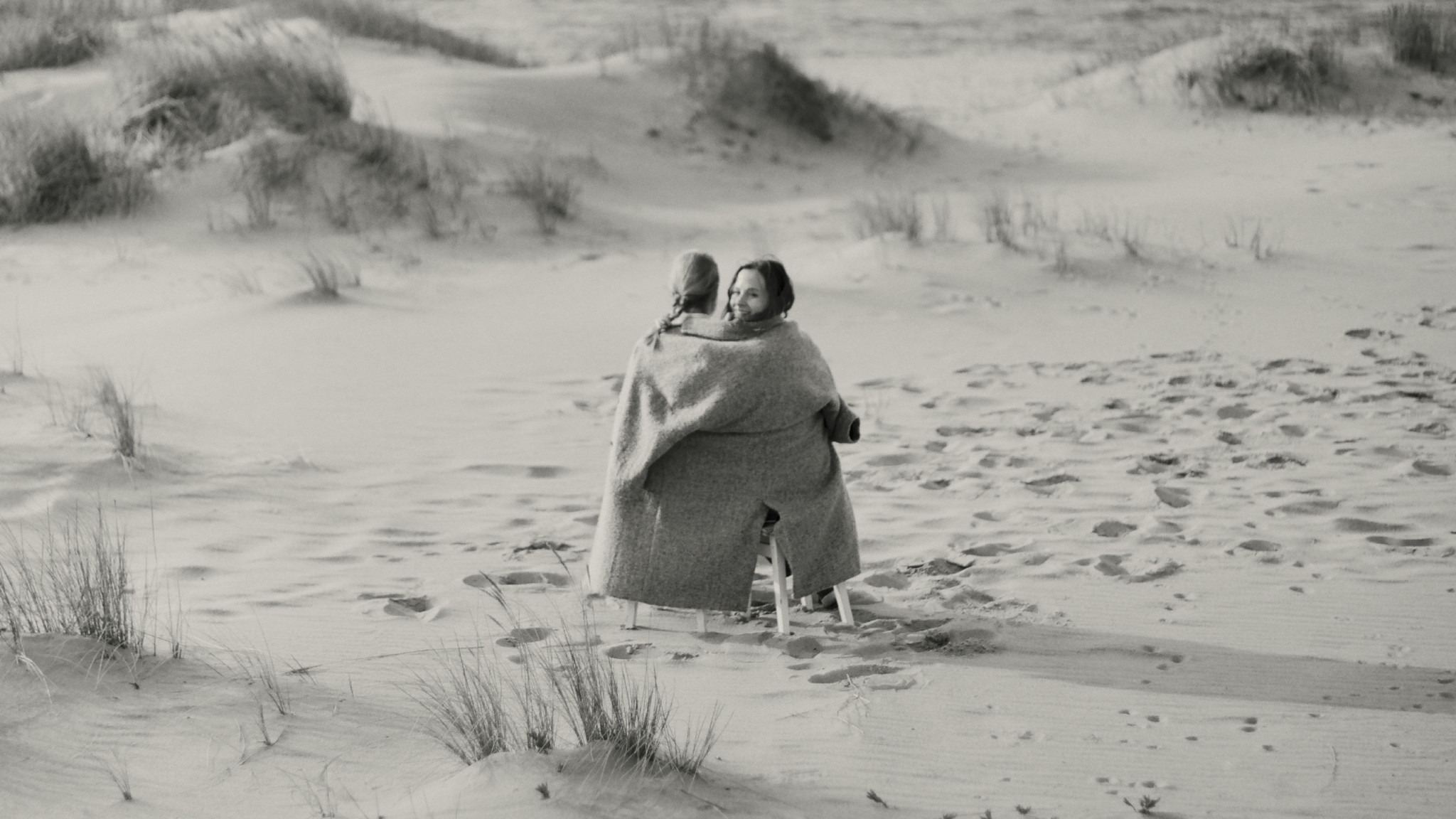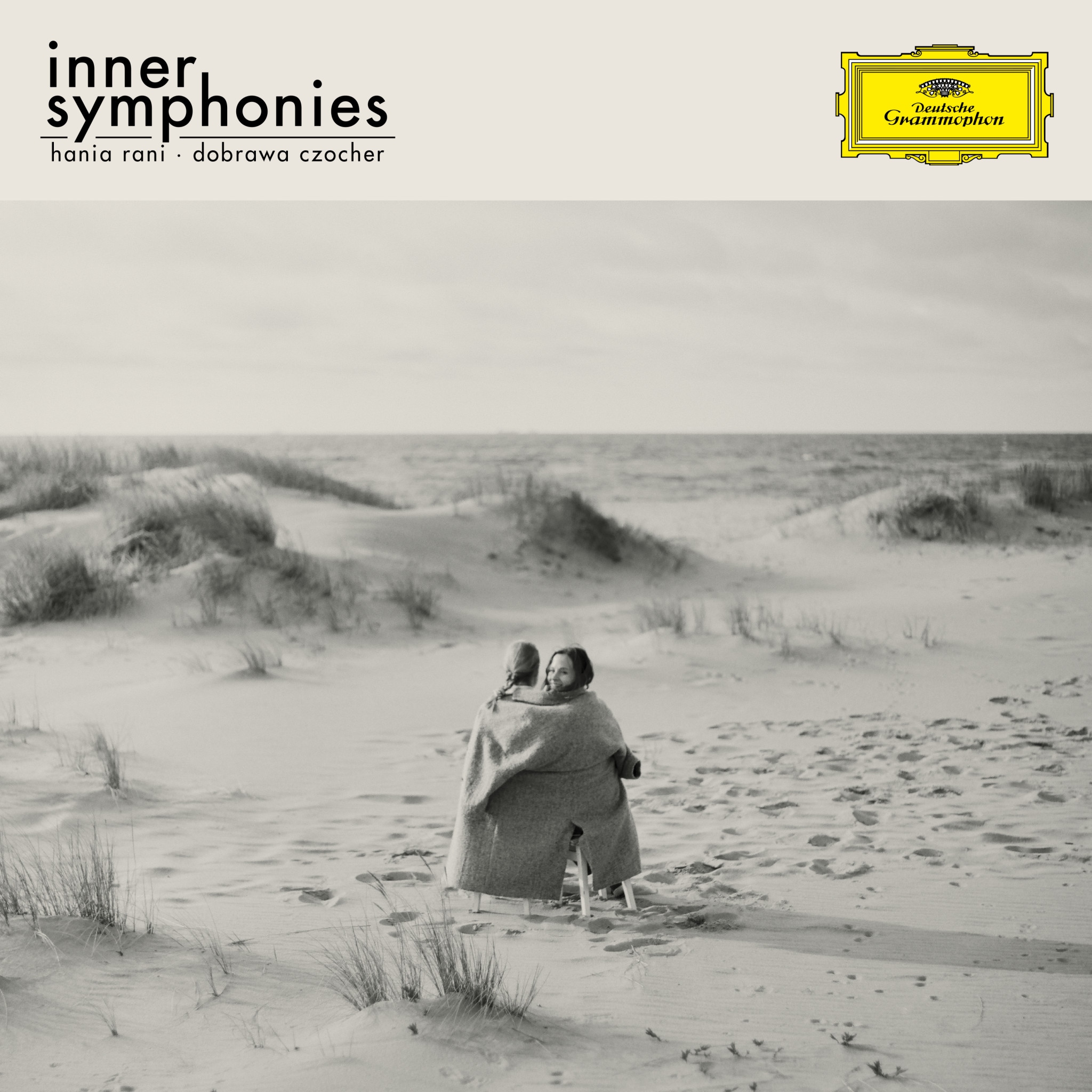Born in 1990 in Gdańsk, Poland, to an architect father and doctor mother, Hania Rani was raised in a house full of music. Alongside her father’s collection of rock and pop—The Beatles, Pink Floyd, Cat Stevens—she also absorbed her mother’s classical music collection. By age seven, she was enrolled at the local Feliks Nowowiejski Music School, which is where she met fellow student and future collaborator Dobrawa Czocher.
The pair subsequently studied together at Warsaw’s Fryderyk Chopin University—Hania focusing on piano, Dobrawa cello—and eventually collaborated on their debut album, Biała Flaga (White Flag), released in 2015. The album consisted of original compositions as well as rearrangements of music by late Polish rock star and composer Grzegorz Ciechowski, the founder and frontman of new wave band Republika.
Featuring just piano and cello, Biała Flaga was an impressively accomplished statement for two young women just starting their recording career. Both minimal and compelling, it was realised via a crowdfunding campaign and yet still managed to enter the top 30 in Poland’s album charts, winning the duo a cult following and officially launching their respective careers.
After university, the pair went their separate ways for a while. Dobrawa took up a position as a cellist with the Szczecin Philharmonic, while Hania co-founded alternative pop project Tęskno before moving to Berlin, where she continued her studies at the Hanns Eisler Hochschule Für Musik. There, she studied counterpoint and contemporary music classes, as well as acoustics, and began fruitful collaborations with modern opera and theatre directors.
Around the same time, she met Berlin-based composer, performer and producer Nils Frahm alongside a community of Icelandic expat musicians that included opera singer Álfheiður Erla Guðmundsdóttir, Bergur Þórisson and Ólafur Arnalds. It was while on a retreat in Iceland, in 2017, that Hania began work on her solo debut album, Esja—named after the scenic mountain range near Reykjavík. Released in 2019, it received rave reviews and led to a series of concerts throughout Europe and Japan, as well as a profile on BBC Radio 4.
Hania’s second album, Home, came out in 2020. In contrast to Esja, it featured vocals and strings, as well as additional contributions from bassist Ziemowit Klimek and drummer Wojtek Warmijak, showcasing a more ambitious approach: the album went gold in Poland, and entered the top 100 in the UK charts. At the same time, her creative vision had blossomed to encompass film and theatre music, resulting in scores for Piotr Domalewski’s 2020 film I Never Cry, and a version of Henrik Ibsen’s play, Nora, directed by Michał Zdunik. Both were featured alongside more striking examples of her soundtrack work on 2021’s Music For Film And Theatre.
2021 proved to be an exceptionally productive year for Hania, as she contributed to the 2021 Berlinale film festival, releasing Live From Studio S2 on Piano Day— an enchanting, 25-minute performance recorded and filmed in monochrome in one of Polish Radio’s most iconic studios. 2021 was also the year that Hania and Dobrawa joined forces again, and signed to Deutsche Grammophon.
Both artists had already made their mark on the Yellow Label—Hania with a notable rework of Debussy’s “La Damoiselle élue” for Víkingur Ólafsson’s Reflections, and Dobrawa as part of DG’s Project XII—but had also caused a sensation independently, with their collaborative re-working of traditional Polish Christmas carol “Jesus Malusieńki”, which they brought into the 21st century with layers of electronic and instrumental sounds.
Alongside re-releasing Biała Flaga to a wider audience, DG commissioned a follow-up project, which became 2021’s Inner Symphonies. Recorded in Szczecin’s Philharmonic Hall, the album featured ten original and distinctive compositions, this time with extra instrumentation (violin, viola, double bass) as well as synths. As well as highlighting the duo’s musical chemistry, it neatly encapsulated the joys of their close friendship and weighty contemporary themes (the pandemic, climate change, civil rights). As Hania explained to DG at the time: “Here, ‘Inner’ means something little, private, intimate, while ‘Symphonies’ means something huge. It’s a new adventure for us.”
Since then, the only way has been up for Hania. Her soundtrack work in recent years has included 2022’s Venice—Infinitely Avant-Garde, 2023’s On Giacometti, and the same year’s The Lost Flowers Of Alice Hart—the latter bagging eight nominations at the Australian Academy of Cinema and Television Arts Awards and winning four prizes, including Best Miniseries. In 2023, she also released another solo album, Ghosts, which fully embraced the world of synths and electronics (as well as ethereal vocals), and featured contributions from Patrick Watson (“Dancing With Ghosts”), bassist and Moog player Klimek, and a song—“Whispering House”—written and recorded with her friend Ólafur Arnalds.
Ghosts was followed by a special album release concert, complete with a string ensemble, in the Witold Lutosławski's Concert Studio at the Polish Radio in Warsaw. A home from home for Hania, the concert was followed last year by the release of the deluxe LP Nostalgia Live, for which Hania also captured the legendary studios from her own perspective via a collection of analogue photos that appeared with the release.
Hania continues to write for films—her latest was an adaptation of Tove Jansson’s The Summer Book—and is currently preparing to release Non Fiction, her first piano concerto and symphonic piece. Composed partly in response to the discovery, in 2020, of the compositions of a young music prodigy, Josima Feldschuh, written during the horrors of World War II in the Warsaw Ghetto, it’s a highly anticipated release.
No one could argue that the last decade has been full of incredible successes for Hania Rani. And yet it’s difficult to escape the feeling that the best might be yet to come…


